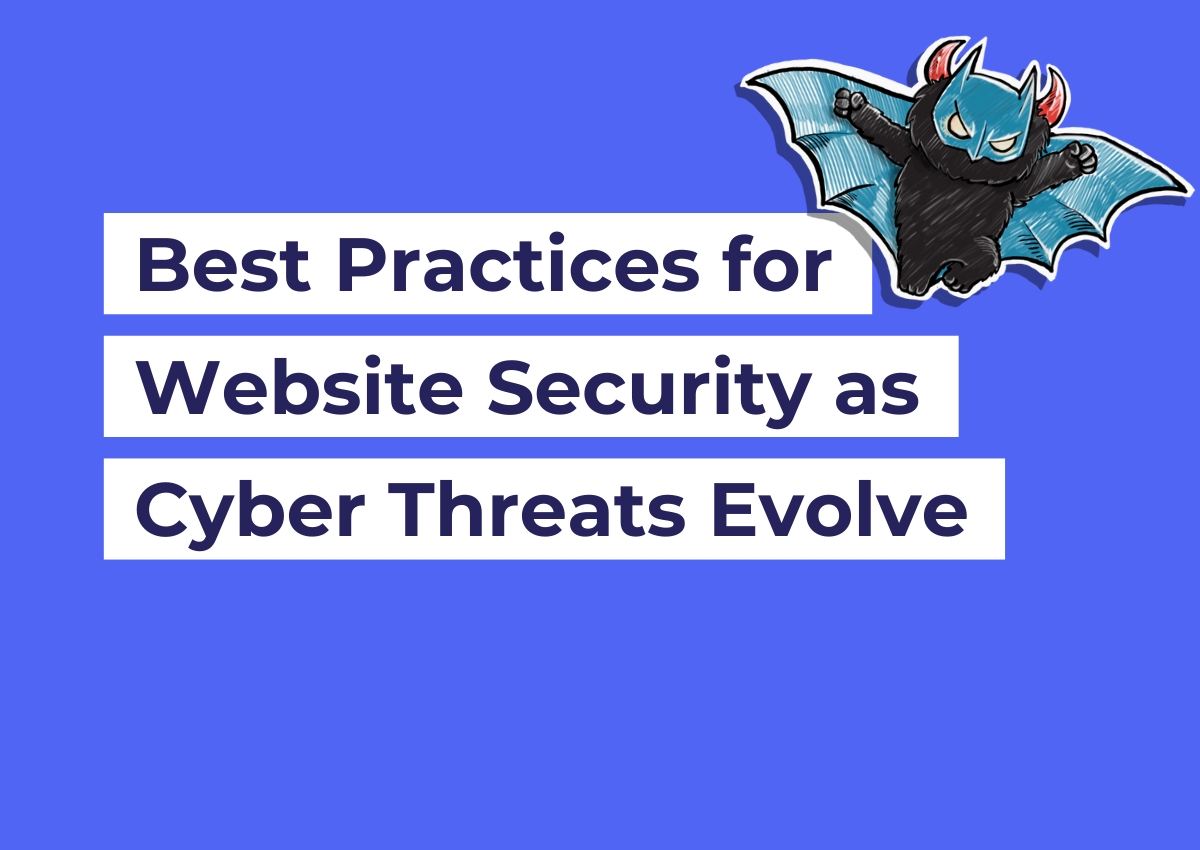Best Practices for Website Security as Cyber Threats Evolve
 https://www.omahamediagroup.com/images/uploads/monster_gallery/Omaha-Media-Group-Black.jpg
https://www.omahamediagroup.com/images/uploads/monster_gallery/Omaha-Media-Group-Black.jpg

As our digital world grows, so do the cyber threats that lurk in its shadows. Now more than ever, securing your business website isn’t just a best practice—it's a necessity. As one of the best web development companies Denver team is here to dive into the latest cybersecurity threats and explore the top strategies to keep your digital fortress safe.
Best practices for website security as cyber threats evolve
Understanding the landscape of cyber threats
Cyber threats are becoming more sophisticated each day. From ransomware to phishing attacks, hackers are constantly finding new ways to exploit vulnerabilities. For websites, common threats include SQL injections, cross-site scripting (XSS), and DDoS attacks, which can disrupt your operations and compromise sensitive data.
Keep everything updated
The first line of defense in website security is ensuring everything is up to date. This includes your content management system (CMS), plugins, apps, and third-party services. Developers regularly release updates that fix security bugs and vulnerabilities. By staying current, you reduce the risk of being targeted by attackers exploiting outdated software.
Use strong, unique passwords
It sounds basic, but the importance of using strong, unique passwords cannot be overstated. For every part of your website that requires login credentials, ensure the passwords are robust—combine letters, numbers and symbols. Consider implementing multi-factor authentication (MFA) to add an extra layer of security.
Employ SSL certificates
SSL certificates are essential for any site, as they encrypt data transferred between users and the server, making it harder for attackers to intercept and steal data. This is especially critical if you handle sensitive customer information or conduct transactions online. Bonus: SSL also helps improve your site’s SEO rankings.
Regularly back up your data
Imagine losing all your website data in an instant—it’s a nightmare scenario. Regular backups are crucial; in the event of a data loss or a website compromise, you can restore your site quickly and efficiently. Automate your backups to occur daily or more frequently, depending on your site’s update frequency and traffic.
Implement web application firewalls (WAF)
A Web Application Firewall (WAF) can be a game changer in your security strategy. It sits between your website server and the data connection and reads every bit of data passing through. WAFs are excellent for blocking hacking attempts, filtering out unwanted traffic, and preventing spam and attacks on your site.
Conduct regular security audits
Regular security audits are vital to catch vulnerabilities before attackers do. Use security tools to scan your website for known vulnerabilities and fix them promptly. Consider hiring cybersecurity experts to conduct thorough audits periodically—think of it as a health check-up for your website.
Educate your team
Last but not least, educate your team about the basics of cybersecurity. Simple steps like recognizing phishing attempts, using secure networks, and understanding the importance of regular updates can significantly enhance your site's security.
Get a secure website by hiring the best web development companies Denver offers!
In today’s digital age, website security should be at the forefront of your business strategy. By implementing these best practices, you not only protect your assets but also build trust with your customers—a crucial component of digital success.
Stay vigilant, stay updated, and let’s keep those cyber threats at bay! Ready to boost your website’s security? Reach out to our team at Denver Media Group and secure your peace of mind today. Let's make cybersecurity a priority and not an option!
Posted In: Website Design, Website Development




















